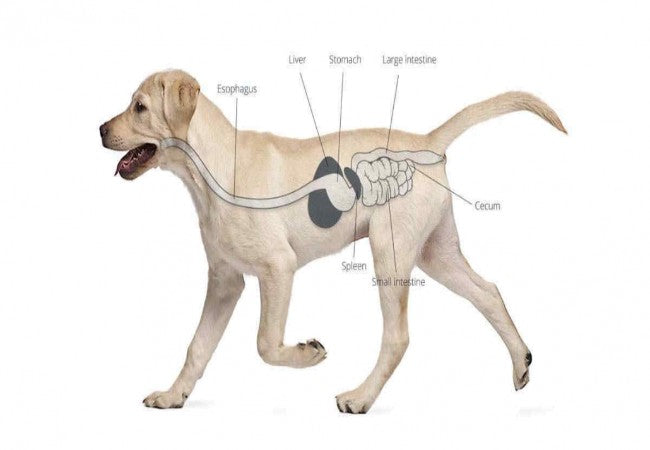Vet Approved Guide: Gastroesophageal Reflux (GERD) in Dogs – Signs, Causes & 2025 Treatment Tips 🐶🐾

In this article
Vet Approved Guide: Gastroesophageal Reflux (GERD) in Dogs – Signs, Causes & 2025 Treatment Tips 🐶🐾
By Dr. Duncan Houston BVSc
Gastroesophageal reflux (GERD), often called "acid reflux," happens when stomach acids flow back up into the esophagus, causing irritation and pain. While it can occur in any dog, puppies and flat-faced breeds are at greater risk. 🛡️
🔍 What Is GERD?
GERD occurs when the lower esophageal sphincter weakens or relaxes inappropriately, allowing stomach acid, bile, or digestive juices to irritate the esophageal lining, leading to inflammation (esophagitis).
📋 Signs of Acid Reflux in Dogs
- Regurgitation: Sudden, effortless expulsion of undigested food.
- Coughing or throat clearing: May accompany or follow reflux episodes.
- Lip‑licking or drooling: Often show nausea or discomfort.
- Loss of appetite or weight loss: Pain may make swallowing unpleasant.
- Change in bark: Due to throat irritation or pain.
🧬 What Causes GERD?
- Anesthesia-related: Common in dogs after surgery due to relaxed esophageal sphincter.
- Congenital issues: Hiatal hernias or delayed sphincter development, especially in puppies.
- Esophageal inflammation: From chronic vomiting, foreign bodies, or caustic agents.
- Megaesophagus or strictures: Make it easier for stomach fluid to back up.
- Dietary factors: High-fat meals delay gastric emptying, raising reflux risk.
🩺 How Is GERD Diagnosed?
- Endoscopy: Gold standard—visualizes esophageal inflammation directly.
- Imaging: X‑rays or ultrasound can help rule out related issues like megaesophagus.
- Barium swallow: Highlights structural problems like strictures or hernias.
- Clinical signs and history: Regurgitation and drooling provide important clues.
🛠️ 2025 Treatment Approaches
1. Diet & Feeding Habits
- Feed small, frequent meals of a low‑fat prescription diet.
- Elevate food bowls or feed in an upright “Bailey chair” position.
2. Medications
- Proton pump inhibitors (PPIs): Omeprazole or pantoprazole to suppress stomach acid.
- H2 blockers: Famotidine or ranitidine to reduce acid production.
- Prokinetics: Cisapride or metoclopramide improve sphincter tone and gastric emptying.
- Sucralfate: Coats and protects irritated esophageal tissue.
3. Surgery
Rarely, surgical procedures like Nissen fundoplication may be considered for refractory cases or hiatal hernias.
4. Ongoing Care
- Continue a low‑fat diet and medication as advised.
- Monitor for regurgitation or throat discomfort.
- Schedule a follow‑up endoscopy to check esophageal healing.
🎯 Prognosis
With early diagnosis and consistent treatment, most dogs improve rapidly. However, chronic or severe cases like strictures may require long-term management.
📱 Vet‑Approved Tools for Support
- Ask A Vet: 24/7 access to expert advice on feeding, meds, or flare‑ups. 🩺
🎯 Final Thoughts
GERD in dogs can range from mild irritation to serious esophagitis. Recognize the signs early, work closely with your vet on dietary and medical management, and monitor long‑term. With attentive care, most dogs enjoy a comfortable life free from reflux. 🐾
For personalized support and peace of mind, download the Ask A Vet app today. 📲🐶






